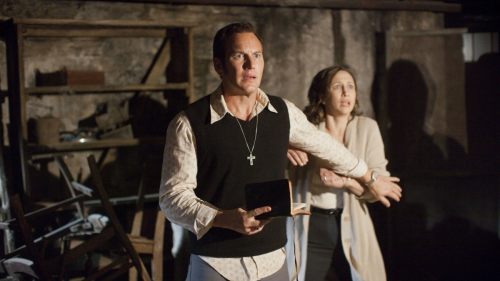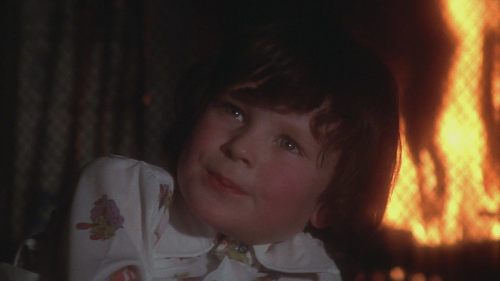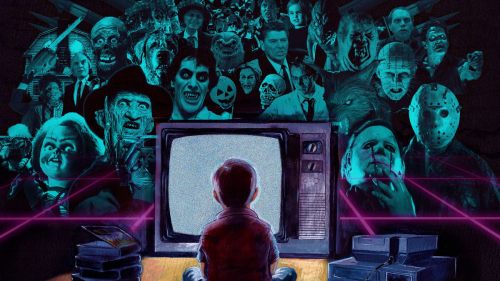POSSESSION Perfected Acting, And It’s Terrifying
Horror movies are poster children for the creative toolkit that is the filmmaking process. Unnerving camera angles, suspenseful music, creepy production design - anything can be employed to create scares. But one of the rarest-used (or least frequently well-used) filmmaking tools in horror is performance. Occasionally there’ll be a memorably terrifying villain, like Hannibal Lecter or Pennywise, but more often than not, they’re helped along by horrifying makeup or costuming. Performance rarely operates entirely on its own to create terror, and never has it worked as well as in Andrzej Żuławski’s Possession.
Possession is unique amongst horror films in that its most affecting moments are devoid of horror tropes. The film has its share of viscera, but for the most part it’s purely psychological. An incendiary portrait of a violently imploding relationship, Possession stars Isabelle Adjani and Sam Neill as Anna and Mark, a couple slowly losing their minds in the wake of an act of adultery. It’s based heavily upon the director’s own divorce, and you can see a lot of naked pain in the way the performances are directed. The film deals with themes of betrayal, sex, murder, incest, suicide, and grief, all communicated by Adjani and Neill in the roles of a lifetime.
Adjani and Neill act as if they’re gripped by primal nightmares, the camera having managed to squeeze into their brains. There’s such intensity that you feel like the actors must have collapsed after every take, having exposed the deepest, darkest parts of their souls. This kind of pure, brain-stem feeling is absolutely terrifying to watch, to a level I haven’t seen plumbed anywhere else (except maybe in James Franco’s Child of God). It’s theatrical, yes, but it’s meant to be. It’s meant to be confrontational and in your face.
Many films have moments of intense acting, but what sets Possession apart is how nonstop it is. The actors simply never let up - Adjani seems constantly on the verge of hyperventilation, while Neill acts so hard that veins raise on his face, scene in and scene out. Many scenes are shot in medium-to-long takes, allowing the actors to rev up to full gear in the space of a continuous shot. The setpieces in Possession aren’t built out of scares or explosions or stunts; they’re built out of performance - tics and mannerisms turning into scene-melting bouts of destruction. There’s a scene delivered by Neill from a precarious rocking chair, threatening to topple over backwards, that I can barely even watch. Possession turns screaming matches into music, with dynamics, harmonies, and variances in rhythm. Even when the actors aren't screaming, you can see the scream just behind their eyes.
Neill and Adjani are terrifying in this film because we can see ourselves in them. The performances here represent the meltdowns we all wish we could have: flipping tables, smashing things, screaming at the top of our lungs. It’s a sort of “there but for the grace of God go I” feeling: we’re scared because we see the potential for such a breakdown in ourselves. It’s like looking over the edge of a cliff: we’re not scared we might fall, but that we might jump.
Because the emotion feels so real and raw, it lends the film’s moments of violence all the more impact. Adjani’s grocery-smashing subway meltdown is the scene everyone talks about, but her performance is far more laser-focused in her scenes with Neill. Scenes where they bicker - frequently in their tiny kitchen - are claustrophobic, and when the actors truly let go, it blasts you back into your seat. In one sequence, slicing into their own bodies with an electric knife is the only thing that calms them down, as Mark concurs with Anna’s conclusion that “it doesn’t hurt.”
And then there’s Heinrich, Anna’s partner in adultery, played by Heinz Bennent. Despite - or thanks to - their animosity, Heinrich has a palpable sexual tension with Mark. Their relationship is profoundly weird, made even stranger by Bennent’s performance. Even scenes that seem ordinary on paper are played with intoxicating (and possibly intoxicated) flamboyance, shirt open and eyes unfocused. Strangely, despite his weird mysticism Heinrich is one of the movie's more grounded characters.
All this probably sounds like hyperbole if you haven’t seen the film. But trust me (or better yet, watch the movie).
It’d be remiss to ignore the other production elements that make Possession all the stranger. The Cold War Berlin backdrop is perhaps a gauche symbol for the rift between Anna and Mark, but the cold architecture makes the film all the more imposing. The wide-angle, handheld cinematography and bare-as-fuck production design focus us in on the performances. The mixture of Adjani’s halting French-accented English and Neill’s still-undiluted New Zealand accent - much of it ADRed - help give the film a geographical imprecision that helps alienate the audience even further. (God knows how anyone ever recorded sound for this movie.)
As the film goes on, it becomes clear that there is, in fact, something supernatural behind these characters’ spiralling madness, which actually serves to undercut the film somewhat. Discovering the grotesque monster (created by Alien and E.T. effects artist Carlo Rambaldi) lurking within Anna’s flat - potent metaphor though it may be - takes some of the power away from what we've been witnessing. It’s meant to be Lovecraftian in nature, and it certainly looks the part - even plays the part, technically - but it’s scarier not knowing why these people are behaving so bizarrely. With something supernatural to pin the emotion on, it’s not as real to us - there’s less threat that we could end up like them.
The terror in Possession is also a sexual one. The central relationship is destroyed by sex; the monster, when its nature is fully revealed, is almost a personification of toxic sexuality, one Anna can’t resist. Anna’s madness would be gendered hysteria were it not echoed completely by Neill and Bennent, and maintained throughout the film. Every scene feels on the precipice of descending into either fighting or fucking, regardless of which characters are involved - and I feel as though that’s completely intentional.
That’s an important point to make, because Possession is frequently called out for so-called “bad” acting. But this is an incredibly tightly directed movie. Nothing is an accident; everyone is on the same page with regards to how things should be played. It takes place in an alternate reality where everything is heightened. In its second half, the two-hour film turns into a marathon, for we feel as though the actors did the opening hour at a sprint.
The last time Possession appeared on BMD, it was in the Schlock Corridor column. And there’s certainly an element of genre schlock to the film. But it’s an art film through and through - a singular work waiting for a mass reappraisal to sit alongside great psychological horrors like The Shining.
Possession is a raw nerve. It’s an exhausting film that feels dangerous; for the actors to perform in, and for audiences to watch. It’s the closest we’ve ever come to seeing raw emotion, as a substance leaking, onto a movie screen. As a glimpse into the most broken part of the human heart, it’s terrifying. And right up until its apocalyptic ending, with Adjani's piercing eyes staring down the audience, it’s absolutely, positively phenomenal.



